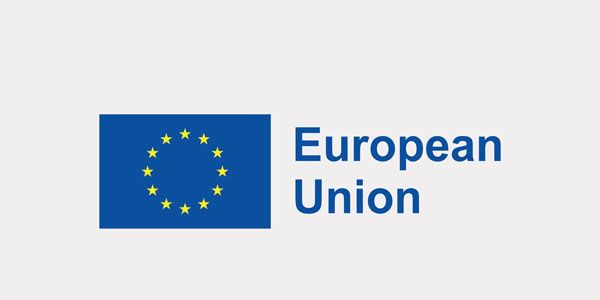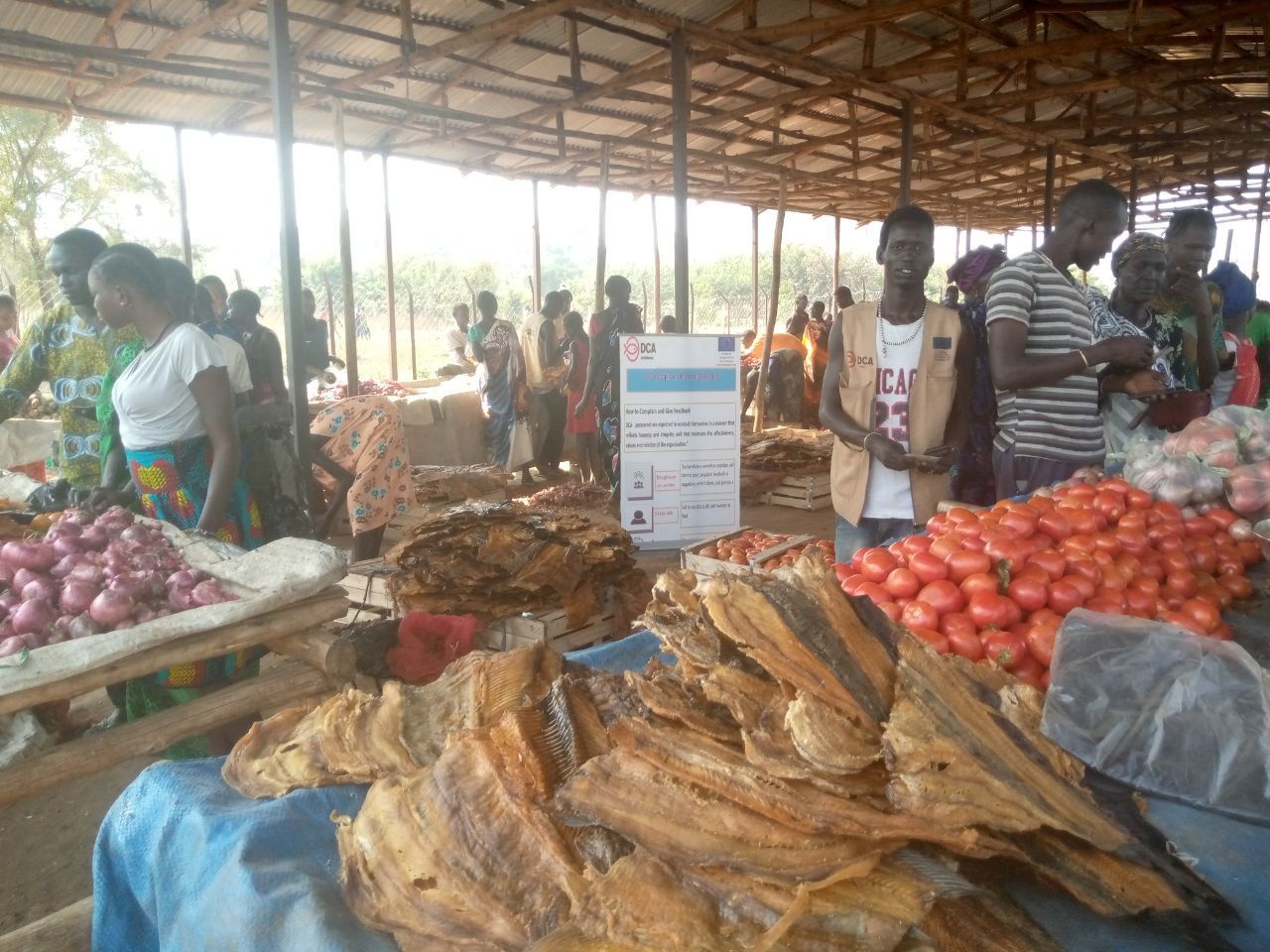Ethiopia hosts large populations of refugees and internally displaced people. Both vulnerable groups of people facing a range of challenges – critical among them are a lack of food and other basic items.
In Gambella, Oromia, and Afar regions DCA Ethiopia and partners offer cash assistance, diverse and nutritious food assistance through an electronic voucher (e-voucher) system, as well as numeracy and literacy training.
All activities are part of the project ‘Integrated, Nutrition Sensitive Emergency Response to South Sundanese Refugees and Host Communities in Gambella, Eritrean refugees and Tigrayan IDPs in Afar, and IDPs in Oromia’ and is made possible by generous funding by the European Union.
Here you can meet five women – and their families – receiving assistance:
***
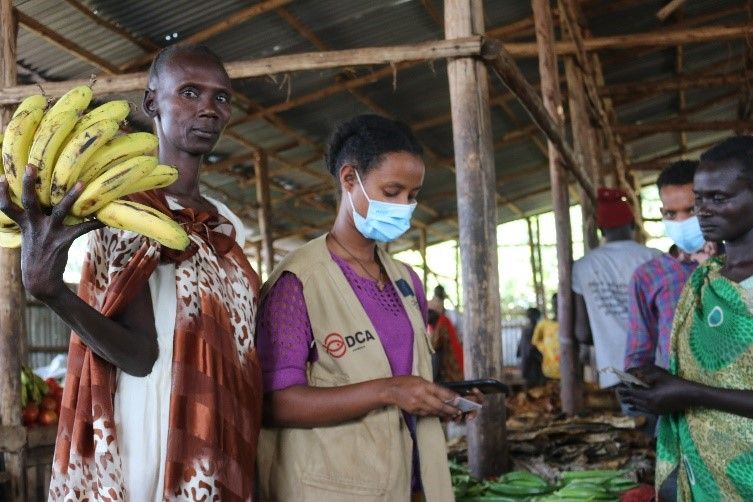
Nyachout Luao is 40, she is married and a mother of six. She is from South Sudan but only the first four children were born there – the two youngest were born in Ethiopia. In 2016 Nyachout and her family left their hometown Bor as conflict in their area intensified. They left on foot, with whatever they could carry – and only after finding a boat to take them across Akobo River, the border between Ethiopia and South Sudan, did they feel safe.
They were settled in Nguenyyiel Refugee Camp and initially they were surviving on a monthly food ration from the World Food Program. However, it was barely sufficient to meet the nutritional needs of the family – and as two more children were added to the family, food was starting to become a real issue. However, the difficult situation Nyachout and her family found themselves in, and the fact that Nyachout was a lactating mother meant they were eligible to become part of DCA’s e-voucher system giving them access to buy a range of fresh food.
“My infant baby is healthier now because of the access I now have to fresh food,” says Nyachout.
***
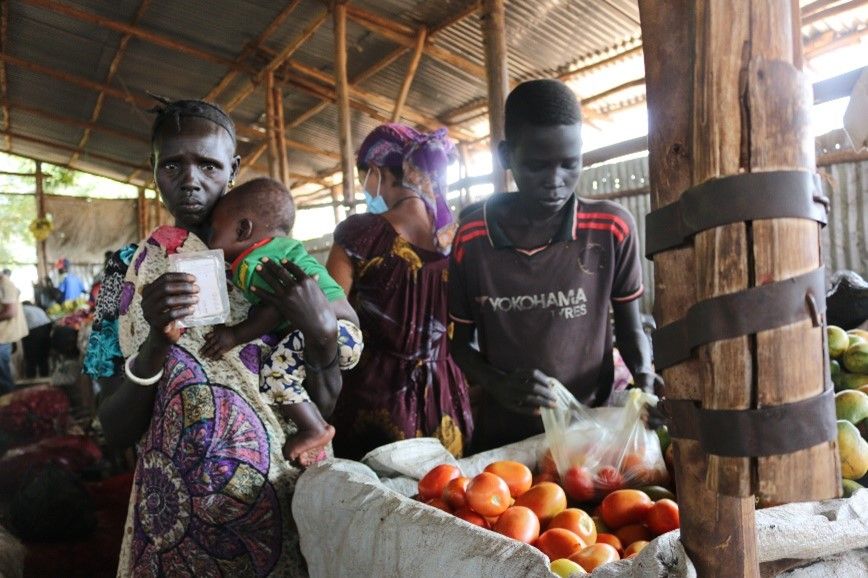
Nyandet Jiok is 35 years old, married and a mother of six kids. Nyandet lives in Nguenyyiel Refugee Camp in Gambella Region.
She left her hometown Akoba in South Sudan in 2014 due to protracted conflict that put the lives of her and her family in danger.
In Ethiopia she settled in Nguenyyiel Refugee Camp and started to receive monthly rations from the World Food Program (WFP). Nonetheless, it was not adequate to meet all the needs of her family. Shortly after giving birth to her sixth child last year, she was selected by DCA to receive fresh food.
The e-voucher system means that Nyandet can choose from a selection of vendors at the local market who sell fresh produce. So, she comes to the market with her baby to select and buy vegetables and dried fish with the e-voucher.
“Thanks to the support we are receiving for fresh food, I have been able to feed my family – and I am especially grateful that my youngest can get healthy food”, says Nyandet.
***
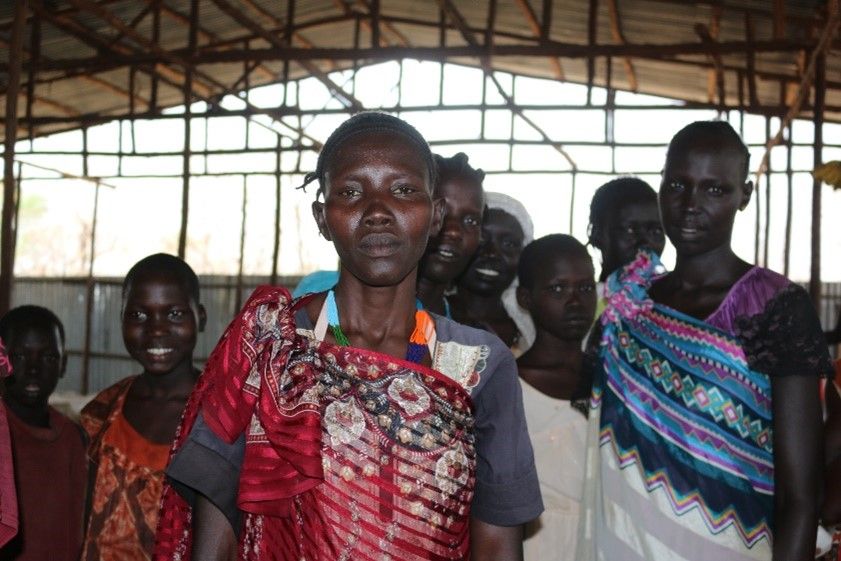
Ngaguak Dak is 38 and a mother of four. She is from Adar in South Sudan.
Ngaguak used to work in a manufacturing company as a cook – and her husband worked in the same company. However, when conflict erupted in 2013, several people were killed in their village – including Ngaguak’s brother.
As the situation was worsening, Ngaguak and her husband decided to leave with their two children, which meant quitting their jobs and forsaking their livelihood.
Upon coming to Ethiopia, they were settled in Kule refugee camp and started receiving a monthly ration from the World Food Program (WFP). With the food ration they were just managing to feed themselves and their children – but as the ration became smaller and the children grew bigger – and Ngaguak gave birth to twins in 2021 – the situation became untenable.
Fortunately, Ngaguak was then targeted by DCA as a fresh food beneficiary. Now Ngaguak can go the market and pick fresh vegetables and dried fish and pay with the e-voucher.
“I can prepare ‘walwal’, ‘kop’, ‘mian’ and ‘yod yod’ with the things I can buy with the e-voucher. Those are not only delicious foods, but they also provide my babies with the nutrition they require”, says Ngaguak, with a smile.
***
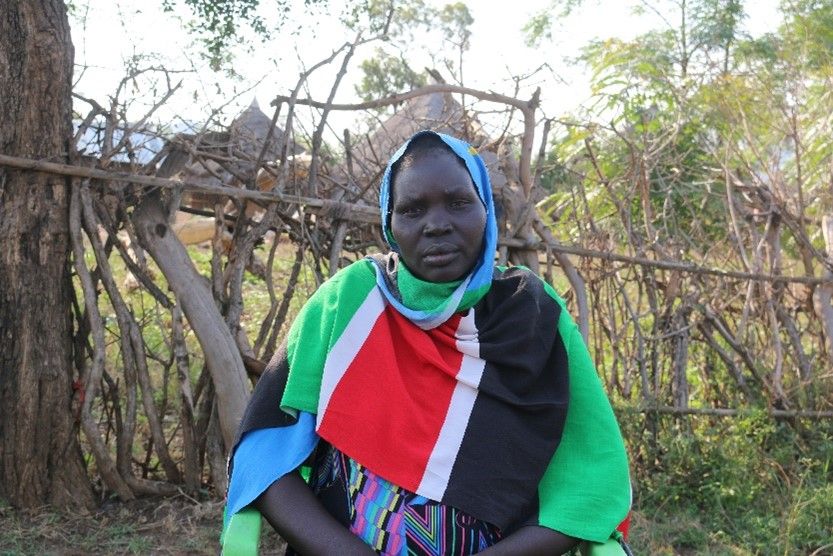
Nyepel Bilchok is 35 and a mother of five. Nyepel lives in Tierkidi Refugee Camp in the Gambella Region. She left her hometown in South Sudan back in 2014, because of an ongoing conflict that put the lives of her and her family in danger.
After coming to Ethiopia, she was settled in Tierkidi Refugee Camp.
In May 2022 she was targeted by DCA to be a fresh food beneficiary that allows her to buy a greater variety of food using her e-voucher card.
“I am now able to buy fresh food such as dry fish, tomatoes, potatoes, carrot, cabbage, kale, banana and the like and prepare delicious and nutritious meals for my family”, says Nyepel. But she did not only get access to fresh food – she also got access to a world of letters and numbers.
DCA Ethiopia has been offering Nyepel, and other women in her situation, basic literacy and numeracy training in addition to the e-voucher.
The training serves an immediate goal – ensuring that they manage their funds better and do not end up overpaying for food and other items they buy at the market.
“I have benefitted so much from the literacy and numeracy training – I can now read and write, count numbers as well as perform basic calculations”, says Nyepel proudly.
About the project
All four women are receiving assistance as part of the project Integrated, Nutrition Sensitive Emergency Response to South Sudanese Refugees and Host Communities in Gambella, Eritrean refugees and Tigrayan IDPs in Afar, and IDPs in Oromia regional state.’
Through the project DCA Ethiopia targets vulnerable groups with direct food assistance and multipurpose cash transfers to cover the many unmet needs of these populations. This is done by providing e-vouchers for fresh food support, increasing food access and diversity, and treating acutely under-nourished children.
The project is implemented in partnership with Action Against Hunger and is funded by the European Union with co-funding from DANIDA.
